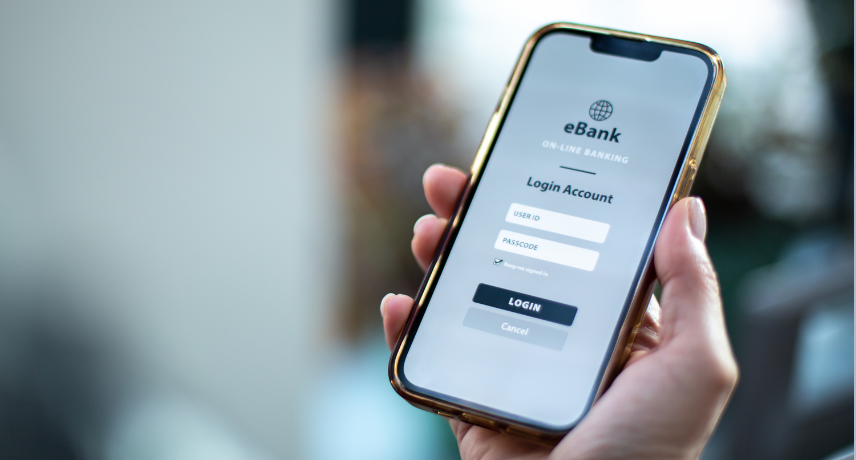
Enquiry Form
How FinTech Startups Are Disrupting Traditional Banking with Mobile Apps
The financial environment is experiencing a seismic change. Through the use of mobile app development, FinTech startups are redefining their money management, payments, and banking relationships. FinTech apps are fast, transparent, and customer-oriented compared to traditional banks that are burdened by outdated systems. Mobile applications are engaging their users more than ever with digital wallets and AI-driven investment applications.
Explore FinTech app development here.
Why Traditional Banking is Losing Ground
Even the traditional banks still use face-to-face, long approval processes and very old technology. The customers of today, however, demand:
- Instant transactions
- Seamless mobile experiences
- Personalized financial solutions
- 24/7 access to money management tools
This growing gap between expectation and delivery has created an opportunity for FinTech startups to thrive.
Top Ways FinTech Startups are Disrupting Banking
1. Digital Wallets and Contactless Payments
Applications such as PayPal, Google Pay, and local FinTech applications have reinvented money transfers. Quick, safe, and convenient, these applications are superior to the conventional banking transfers that may be associated with delays and fees.
2. AI-Powered Personal Finance
FinTech apps combine AI to offer real-time cost monitoring, budgeting, and suggestions for saving. Such proactive tools are seldom offered by the traditional banks, and the customer is left to do the math.
3. Peer-to-Peer Lending
Mobile-first platforms have brought borrowers and lenders into direct contact without involving a bank at all. This not only causes cost reduction but also financial inclusion of underserved populations.
4. Robo-Advisors and Investment Apps
Micro-investing has progressed into portfolio automation, and apps are simplifying wealth management. Even investment is being made easier by startups, especially for the younger generation who need convenient digital tools.
5. Cryptocurrency and Blockchain Integration
The implementation of crypto wallets and blockchain solutions into apps is a direction in which FinTech startups are on the forefront. These technologies encourage transparency and international transactions, which banks are yet to embrace.
6. Enhanced Security and Biometrics
Even though passwords and PINs are still widely used in conventional banks, newer FinTech apps are now using biometrics, tokenization, and advanced encryption to provide enhanced security.
The Mobile Advantage: Why Apps Win
FinTech apps stand out because they are:
· Easy to use: Simple and user-friendly.
· Data-driven: Customized experiences with AI and analytics.
· Scalable: Designed to serve millions of users with minimum downtime.
· Innovative: Adding new features continuously to satisfy changing customer requirements.
This is a combination that is redefining customer trust and loyalty—areas in which banks previously were at the top.
What This Means for the Future of Banking
Banking is no longer limited to the physical branches. Startups are creating a mobile-first, customer-centric future with financial app development. The only alternative that the traditional banks have is collaborating with these innovators or risking becoming obsolete.
Learn more about financial app development here.
Conclusion: How Softwares In Demand Helps
In the case of FinTech startups and technology providers, developing an appropriate mobile application can be the difference between success and irrelevance. Softwares In Demand (SID) is a dedicated platform that helps match IT/software vendors with potential customers interested in their products or services. SID provides quality leads and helps to connect with valuable people in the technology industry, so you can grow faster and make sure that your fintech innovations get to the appropriate audience.
FAQs: Trending Questions on FinTech and Mobile Apps
Q1. How are FinTech apps better than traditional banking apps?
FinTech applications are based on innovation, customization, and acceleration, whereas most banking applications remain unresponsive and have limited functionalities.
Q2. What technologies power FinTech mobile apps?
Modern FinTech apps require the use of AI, blockchain, cloud computing, biometrics, and advanced encryption.
Q3. Are FinTech apps secure?
Most have biometric authentication, tokenization, and the encryption of data and are therefore more secure than many legacy systems.
Q4. How do FinTech startups earn revenue from apps?
They normally make money through subscriptions, transaction fees, lending services, and alliances.
Q5. Can traditional banks compete with FinTech startups?
Yes, provided that they become digital-first, adopt mobile innovation, and collaborate with technology providers.